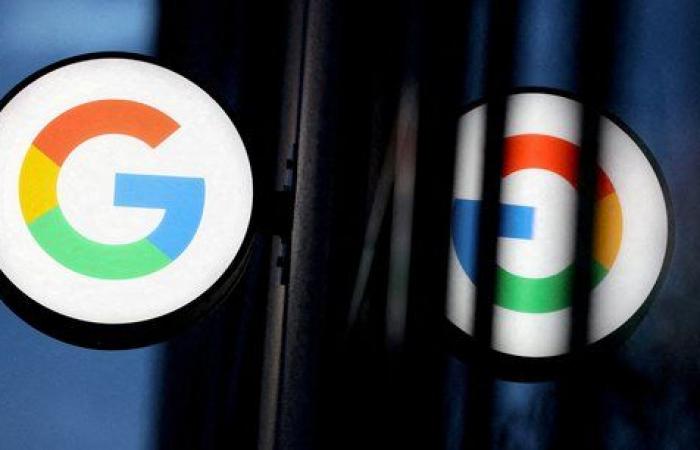“Amazing”, “magical”… On social networks, superlatives abound to describe NotebookLM, a tool born in the Google Labs laboratories a year ago and which has been creating buzz online since its recent update. For the first time, an AI tool makes it possible to synthesize different documents in a few clicks and, above all, to transform them into a podcast of around ten minutes, only available in English for the moment, featuring a conversation between two virtual hosts.
Result: Internet users have fun using it on all types of content, including technical documents, their LinkedIn profile, a bank statement, an exchange of messages… However, the tool is not free of errors , but as with ChatGPT in its beginnings, it is the stunning effect that takes precedence for the moment. Some claim that “ Deep Dives ”, the name given to these conversations, have become their favorite podcasts. A welcome viral effect for Google, which until now lacked a major original success in generative AI.
Google (finally) has its ChatGPT moment with its NoteBookLM podcast generator
Remember: when the OpenAI chatbot was launched at the end of 2022, Google triggered the “code red”, the equivalent of its fire alarm. Despite its reliability problem linked to the “hallucinations” of generative AI, ChatGPT was seen from the start as a new way to search for information online. Enough to give Google a cold sweat, which has had a monopoly on this market for more than twenty years.
One of the technological building blocks behind ChatGPT was born in the web giant's laboratories in 2017. But it was another company, OpenAI, which managed to make it a widely used product. Certainly, Google has tried to catch up with its challenger by developing its own large language model (LLM), Gemini, and integrating it into its search engine. In around a hundred countries, this AI imposes AI-generated summaries of their queries on users. But far from arousing enthusiasm, AI Overviews mainly receives mockery for its errors and absurdities. And it was ultimately NotebookLM, more experimental, which attracted praise, although it remains far from the usage records of ChatGPT in its early days. Raiza Martin, product manager of the team of around ten people behind the tool, explains The Tribune the genesis and future of this project.
AI race: Google is working hard to catch up with OpenAI and Microsoft
LA TRIBUNE – What is the origin of NotebookLM?
Raiza MARTIN – It started from a general request from Josh Woodward, the head of Google Labs. He told me: “Imagine a product centered on AI, around which we could build a real economic model. » At the time, I was working with an engineer, Adam Bignell, who was developing a technology called “Talk to Small Corpus.” [littéralement, « parler à des petits corpus de texte », Ndlr]. Today, we know that AIs, in particular large language models (LLM), are very efficient at processing sets of data, particularly textual ones.
The idea was therefore to use AI to interact with texts. More specifically, starting from a specific source offered a completely different context than a simple conversation with a model. This is the great innovation of NotebookLM: starting from content given by the user (a document, a stack of slides, etc.) and discussing it with the AI.
OpenAI has just launched Search GPT, a search engine whose ambition is to dethrone Google. Why not focus your efforts on Google's core business, online search, to resist this new competition, rather than developing a product that is so different?
Raiza MARTIN – We thought about the “routine” of a person who works with a computer. Sometimes we look for sources, which is classic research. But often, the challenge comes afterwards: “I found my sources. What to do with it now? » NotebookLM is located exactly in this zone. Google excels at search. We therefore chose to work on what happens next: reading, thinking, extracting ideas, structuring a point of view… With the arrival of LLMs, these traditional processes have evolved enormously. This opens up new possibilities.
OpenAI unveils its search engine, a tool to compete with Google
The success of NotebookLM is mainly linked to Audio Overview, a feature that allows you to generate a virtual podcast with two hosts summarizing a subject while discussing. Why this format?
Before audio, we explored features like document writing, slide creation, or email writing. But all this remained text and did not fundamentally change the mode of interaction with the AI. However, people learn and consume information in very different ways. One of NotebookLM's first features, summary generation, was hugely successful from the start. Today, everyone wants a summary of something.
So we naturally thought of the audio format. And we wanted to go beyond just reading text with text-to-speech, which is often a bit boring. Our goal was to make this functionality useful, pleasant and innovative.
Some observers say this is a bit of a “ChatGPT” moment for Google. Did you expect this success?
I didn't think it would get this big. What's fascinating is that users immediately want to try NotebookLM with all kinds of content. For me this is a clear sign of his potential.
Does NotebookLM have the potential to truly become a mainstream tool? Isn't it more reserved for people who are used to working with documents, such as researchers or journalists?
We do not share the number of active users, but the use of the tool has increased more than tenfold in one month. In the beginning, our users were mostly students and teachers, who are often the first to adopt new technologies. Some exchange prompts to try with NotebookLM to help them with their revisions. But they are no longer the only ones.
Today, more than half of our users are professionals, with strong adoption by salespeople, but also people who work in finance. NotebookLM remains relevant for anyone who works on a computer.
Do you plan to integrate NotebookLM into the Google Search homepage or monetize it?
NotebookLM is currently an independent service. We recently launched “NotebookLM Business”, actively used by over 80,000 businesses. It's a pilot with early access, so they don't pay yet.
Does the success of NotebookLM – which has more to do with the format than the power of the model itself – mean that AI performance is no longer the priority? And that we should focus on uses?
These two aspects are moving forward in parallel. Model capabilities are crucial, but so is translating them into useful products for users. One cannot exist without the other.
Comments collected by Marine Protais






